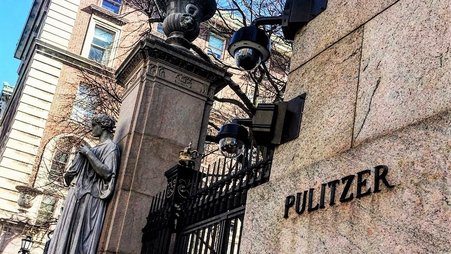
Florida Gov. Ron DeSantis
Last week, Florida Gov. Ron DeSantis hosted a roundtable discussion to brainstorm on how politicians and celebrities can weaponize the courts against their critics. We responded to his stunt in an op-ed in the Tampa Bay Times.
But playing defense on newspaper pages is not enough — a legislative response is needed. Fortunately, a recent article in the Federal Communications Law Journal (PDF) proposed just that.
Authors Matthew Schafer and Jeff Kosseff explain that DeSantis is not the only one threatening established press freedoms. Supreme Court justices, including Clarence Thomas and Neil Gorsuch, have floated revisiting New York Times v. Sullivan – the seminal 1964 case requiring public figures to establish “actual malice” to sue for defamation. That means proving that defendants either knew their statements were false or recklessly disregarded the truth.
As explained in our op-ed, the actual malice rule prevents the rich and powerful from nitpicking at every hyperbolic statement and inconsequential error to punish their critics with expensive litigation. Without it, the prospect of having to prove the truth of every detail of a news story to a jury would deter already cash-strapped publishers — not to mention independent journalists who can’t afford lawyers — from challenging those in power with adversarial reporting.
Should DeSantis propose a Florida law to circumvent Sullivan (as he has considered before), it will likely end up before a Supreme Court with at least two sympathetic justices — maybe more.
Schafer and Kosseff explained in Slate that if Sullivan is overruled, defamation law would be left up to the states, similar to abortion laws without Roe v. Wade. “Some states may well be exceedingly protective of free speech/free press rights. But others might use the overruling of Sullivan to impose draconian measures meant to control political debate,” they wrote. And the state officials most interested in suppressing investigative reporting will likely be the same ones who most need to be investigated.
That’s why a legislative solution at the federal level is so crucial. Some who oppose Sullivan, like DeSantis and Donald Trump, do so for self-serving reasons — as part of ongoing crusades to stifle dissent. They’re not persuadable. But other critics have little problem with the substance of the actual malice rule. They just believe it should come from Congress and not the courts. That provides hope for bipartisan support for codification.
Like Sullivan, the legislation proposed by Schafer and Kosseff “would discourage baseless defamation actions altogether while leaving the courts open to plaintiffs with valid claims.” In addition to codifying the actual malice standard, it would make permanent the Supreme Court’s prohibition on liability for statements of opinion. That limitation is crucial to, among other things, creating adequate breathing room for heated campaign rhetoric.
As important as it is to codify current protections, recent history shows they are not enough. There has been a spike in politically-motivated defamation suits by powerful public figures, notwithstanding Sullivan, over the last few years. Billionaires with axes to grind against the press, but no viable claims of their own, have taken to funding surrogate plaintiffs to sue in their place, often without having to disclose who is pulling the strings. Politicians have even tried planting lawsuits by non-public figures so they can evade the actual malice requirement.
Schafer and Kosseff’s proposal would help prevent those abuses by imposing limitations on damages so that legitimate defamation plaintiffs can be compensated for actual harm they suffered but cannot shut down media outlets with punitive jury awards.
DeSantis and his ilk aside, there is reason for optimism that elected officials in this country still understand the need to restrict anti-press litigation. Most states now have laws against Strategic Lawsuits Against Public Participation (SLAPPs) that allow victims of frivolous defamation cases to promptly appeal adverse rulings and recover their attorneys fees.
Those anti-SLAPP laws have passed both Democratic and Republican legislatures. Like Sullivan, they recognize that many powerful defamation plaintiffs don’t care if they win — their entire objective is to punish those who criticize the government with litigation costs.
Congress also came within inches in December of passing the bipartisan PRESS Act — which would have ended abuse of the court system to surveil journalists and compel them to burn their sources. Efforts are underway to finally make it the law this year.
Perhaps 2023 could mark the end of both government surveillance of journalists and retaliatory defamation claims by public officials. That would make it one of the most significant years for First Amendment freedoms in the nation’s history. But either would be a good start in sending a clear message that the free press is not dependent on the whims of thin-skinned politicians.




